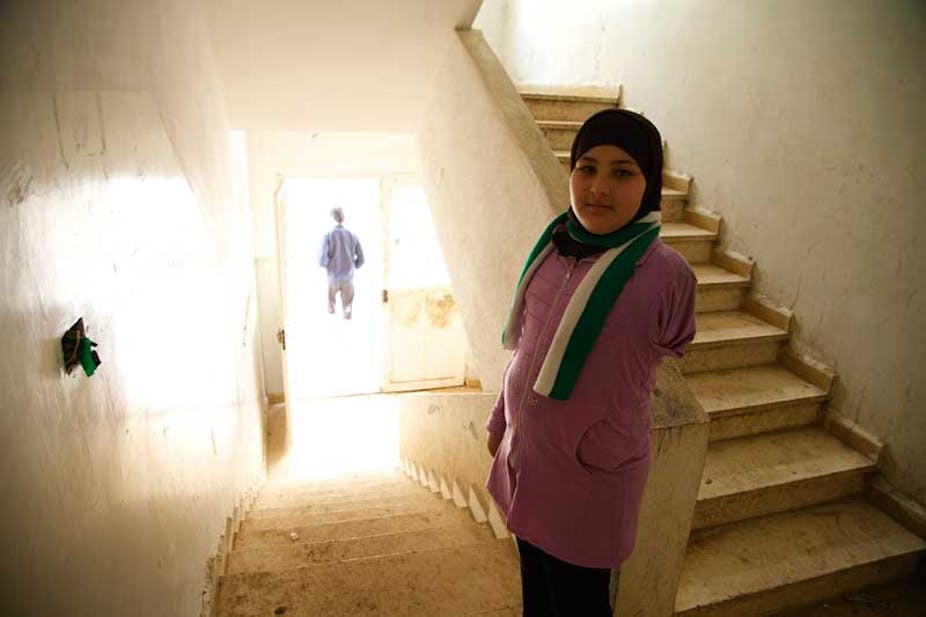A grief-stricken father tenderly hands over the shrouded body of his tiny daughter to be placed in the mass grave. Surgical masks are being worn in the hope that they will ward off the chemical death that has claimed so many lives. Some shout about revenge, hatred and the greatness of God - but for that man, there are no words left.
Who could fail to be moved by such a sight? Do we not have a responsibility to protect the innocent who cannot protect themselves? Surely any right-thinking person should demand: Something Must Be Done. But it is precisely this emotional knee-jerk reaction to events in Syria that must be resisted by the West in general and the UK and US in particular.
For what can be done?
As UN weapons inspectors come under sniper fire in the Syrian capital, air strikes are being threatened from both sides of the Atlantic, with the UK parliament being recalled to debate possible intervention. The Russians are not cooperating with their bellicose counterparts on the UN Security Council – the US, UK and France. Any use of force by NATO is likely to be met by resistance from Syria’s Russian-supplied air defences.
Political vulnerabilities in London and Washington will not allow President Obama and Prime Minister Cameron to embark on another foreign misadventure that results in more British and American body bags being silently ferried home.
Some call for drones to be deployed. However, the Reapers and Predators that operate with impunity over Afghanistan, Pakistan, Yemen, and elsewhere will simply provide a few minutes of entertainment for Syrian ground-to-air defences if they enter contested airspace.
A full-scale attack by American F-16s and F-22s, and British Typhoons and Tornados, would fare much better, especially if accompanied by the full suite of NATO electronic and other counter-measures. They would also come at a price that Washington and London seem as yet unwilling to pay.
Cue pilotless cruise missiles. Expensive, but also accurate and with sufficient range to cause significant damage if you fire enough of them at the right targets. Hit the wrong targets and a humanitarian and PR nightmare will ensue.
Unfortunately, we do not yet know definitively who released the chemicals in the area of Ghouta outside Damascus – and we need to be very sure before escalating a war and making things worse for the innocent we might hope to protect. It was probably Assad’s government’s forces but we need to consider what Hague rejects as the “vanishingly small” possibility that it was done by elements of the Syrian opposition.
Air power, contrary to the beliefs of the blindly optimistic, is not the panacea option. Advocates point to the success of the Kosovo air campaign in 1999 where Slobodan Milosevic’s regime crumbled after 78 days of bombardment. Their selective memories forget that the US secretary of state at the time, Madeleine Albright, and her NATO chiefs anticipated it would only take two to three days of aerial attacks to force the Serb leader to the negotiating table.
Milosevic, like Assad will have done, had concealed his key military assets and NATO almost ran out of targets to hit. The Syrian regime will no doubt have learned those same lessons, hidden what they can, and surrounded immovable objects with civilians and TV cameras.
So I ask again, what can be done? Precious little that can ensure a positive outcome. Threats of eventual prosecution at the International Criminal Court can be levied at all sides, but will probably be ignored.
Negative outcomes are easier to guarantee. An early reprisal attack against the Syrian regime or other opposition group, which later turns out not to have fired chemical weapons, would be humiliating for the West. It will not hasten the end of hostilities, merely prolong the enmity of the protagonists. Such an intervention will not go unnoticed by potential insurgent groups in other fragile states, fuelling future uprisings for the international community to resolve.
Finally, if by some miracle an aerial bombardment of Syria brought all contending parties to their senses and to the negotiating table, the West would not be thanked with a flowering of universal suffrage, human rights and individual freedoms in that benighted land. Iraq, Libya and Egypt should have taught us that while Western weaponry is welcome when it comes to removing tyrants, Western political ideology is not.
If we truly value the dignity of the Syrian people and hope that they might find a lasting peace, we must recognise that a solution cannot be imposed from the outside. If that country is to achieve long-standing stability it will have to pay a terrible blood price – just as our forebears did in the UK and the US. All we can do right now is weep for the children … and stay out of Syria.

